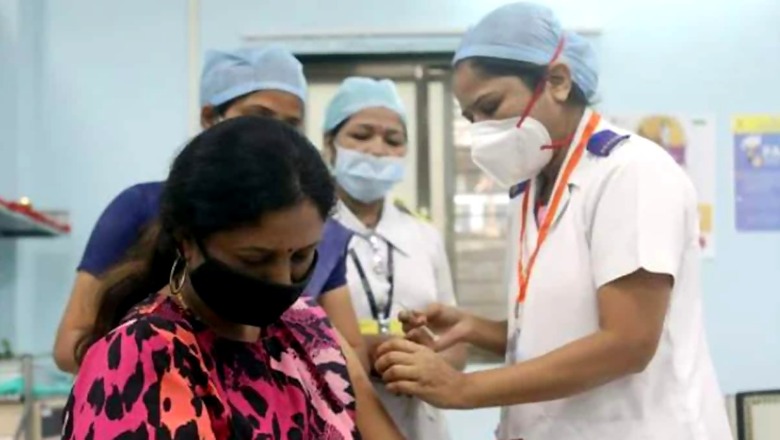
views
Many of those residing in Delhi-NCR are already feeling a heavy head, burning eyes, and itchy throats – blame the toxic air they are breathing in. On Friday, the Air Quality Index (AQI) plummeted to the “severe plus” category in several parts of the national capital. New Delhi topped a real-time list on Friday of the world’s most polluted cities compiled by Swiss group IQAir, which put the national capital’s AQI at 611 in the “hazardous” category.
This toxic air is causing a significant rise in health problems. In the last two weeks, hospitals across Delhi-NCR have seen a concerning increase in respiratory problems, and just in the past few days, there has been a noticeable jump in patients with breathing difficulties and eye problems.
Infants and children most at risk
Adults are experiencing worsened symptoms of chronic respiratory conditions and an elevated risk of heart issues. Yet, infants and children, doctors believe, are the most “at-risk” group as their developing lungs are particularly susceptible to pollutants, leading to a significant rise in respiratory infections, allergies, and impaired lung development.
Sample this: over the past four days, Dr Pradeep Bajad, consultant of pulmonary medicine, at Amrita Hospital in Faridabad, has noted a significant increase in patients coming to outdoor and emergency facilities. The hospital has experienced a surge in patients presenting with respiratory issues, with cases now reaching three to four times the usual rate.
“Alarmingly, approximately one-fourth of these cases involve individuals encountering respiratory problems for the first time,” Bajad said.
The most prevalent respiratory symptoms among these patients are cough and increased sputum production. These individuals come with symptoms resembling asthma.
A similar trend has been observed in hospitals across Delhi-NCR.
Dr Animesh Arya, senior consultant of pulmonology at Delhi-based Sri Balaji Action Medical Institute calls the intensity of rush of patients “deeply concerning”.
Over the last 15 days, we have noted a startling 40% increase in respiratory cases. In the last 3-4 days alone, there has been a shocking 25% surge in patients experiencing respiratory distress and even eye-related issues.
Dr Navneet Sood, a pulmonologist at Delhi-based Dharamshila Narayana Superspeciality Hospital has also been noticing a major spike in incoming patients in the last fortnight.
He told News18 that over the last 15 days, the hospital has witnessed a notable increase in respiratory cases, with a 30% rise in patients reporting symptoms like coughing, shortness of breath, and aggravated asthma.
“What’s even more alarming is the sudden spike observed in the last 3-4 days, where we have seen a 20% increase in respiratory-related cases alone. These escalating pollution levels pose distinct risks to different age groups,” said Dr Sood.
He said that adults, especially those with pre-existing respiratory conditions, are experiencing worsened symptoms.
“Infants and children are particularly vulnerable. Their developing respiratory systems are more sensitive to pollutants, leading to an increased incidence of asthma, bronchitis, and upper respiratory tract infections,” he said.
Similarly, Dr Vivek Nangia – who is the principal director and head of pulmonology at Max Super Speciality Hospital, Saket – has a distinct increase in the footfall in OPD as well as emergency admissions.
Doctors ‘warn’ of major health problems, people must mask up
Several experts have warned that the recent escalation in air pollution levels undoubtedly poses a significant threat to overall health, especially our respiratory system.
To protect ourselves, doctors stress the need for everyone to follow strict safety measures.
“Wearing high-quality masks, staying indoors during peak pollution hours, and avoiding exercising in the open can significantly reduce exposure to harmful pollutants,” Arya suggested.
He warned that “the health of our children, in particular, demands immediate and concerted efforts to curb this pollution and protect our most precious asset – their future”.
To mitigate these risks, Sood from Dharamshila Narayana Superspeciality Hospital said that it’s imperative that individuals, especially parents, take stringent precautions, such as using N95 masks, staying indoors during peak pollution hours, and investing in air purifiers.
“The urgency of these measures cannot be overstated, as prolonged exposure to such hazardous air quality can have long-lasting health consequences, particularly for the youngest members of our community,” he said.
















Comments
0 comment